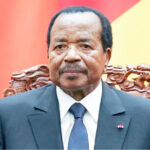
President of Rwanda, Paul Kagame, has said pulling forces together in community-based health insurance, community health workers and good external partnerships are responsible for Rwanda witnessing its highest decline in maternal and child mortality rates, recorded so far in the country.
President Kagame who is also the African Union chairman, spoke at the 71st World Health Assembly in Geneva, Switzerland on Monday.
In his keynote address at the High-Level segment on Universal Health Coverage, “The key was an approach that put individuals and communities at the centre. In choosing this path, Rwanda learned from others who preceded us, and we also benefited greatly from advice and support from the World Health Organization (WHO).”
While sharing Rwanda’s journey towards achieving Universal Health Coverage, commonly known in the country as Mutuelle de Santé Kagame, said no fewer than 90 percent of Rwandans are currently enrolled in health insurance.
He informed that the Rwandan government subsidises only one-third of the cost with contributions from beneficiaries taking care of the remaining two-thirds.
On the role technology played in the process, he said, “Integrating digital applications and new technologies into our health system has also made a difference, and we are now using drone aircraft to quickly deliver blood and medical supplies to rural hospitals.”
Speaking on volunteer workers in the health sector, Kagame said, Rwanda has continuously increased its network base of volunteer community health workers, in all villages across the country. The volunteers are an essential link between the population and health facilities.
In support of the proposal by the World Health Organization’s (WHO) in its short-term plan to prioritise universal healthcare, Kagame encouraged countries to recognise that universal health coverage is not a burden but rather an opportunity.
He stressed that, “Achieving Universal Health Coverage is feasible for countries at every income level. It is also the right thing to do. Strong political leadership will certainly be necessary at every stage. All around Africa, and beyond, whenever countries have put universal, community-based primary health systems in place, the results have been good.”
Referencing countries which have gained mileage in the UHC implantation, he said, “Ghana, Kenya, Morocco, and Senegal all offer a subsidy to insurance. Ethiopia is a pioneer in the use of Community Health Workers as the frontline of primary healthcare, and Ghana is also deploying them with great success.”
Kagame made a case why countries should embrace UHC, saying, it is a scheme which mostly benefits women and girls, and in return makes gender equality a reality.
He said, “When the means to succeed, and the responsibility for doing so, are put directly in the people’s hands, not only are lives saved, but it is also sustainable.
“Families invest their savings in businesses and in better-quality education for their children, for example. These items should really be enough to cement the political case for Universal Coverage. But it doesn’t hurt to add two more arguments in favour that are often overlooked: Jobs, and women’s economic empowerment.”
Stating that it is a scheme that could be funded by national resources and not always donor funds, the Rwandan President also said, “When the means to succeed, and the responsibility for doing so, are put directly in the people’s hands, not only are lives saved, but it is also sustainable.”
He added that, “Families invest their savings in businesses and in better-quality education for their children, for example. These items should really be enough to cement the political case for Universal Coverage. But it doesn’t hurt to add two more arguments in favour that are often overlooked: Jobs, and women’s economic empowerment.”
While advocating more funding to be channelled towards achieving UHC by 2030, he urged increased training and employment in the health workforce.
 Join Daily Trust WhatsApp Community For Quick Access To News and Happenings Around You.
Join Daily Trust WhatsApp Community For Quick Access To News and Happenings Around You.


